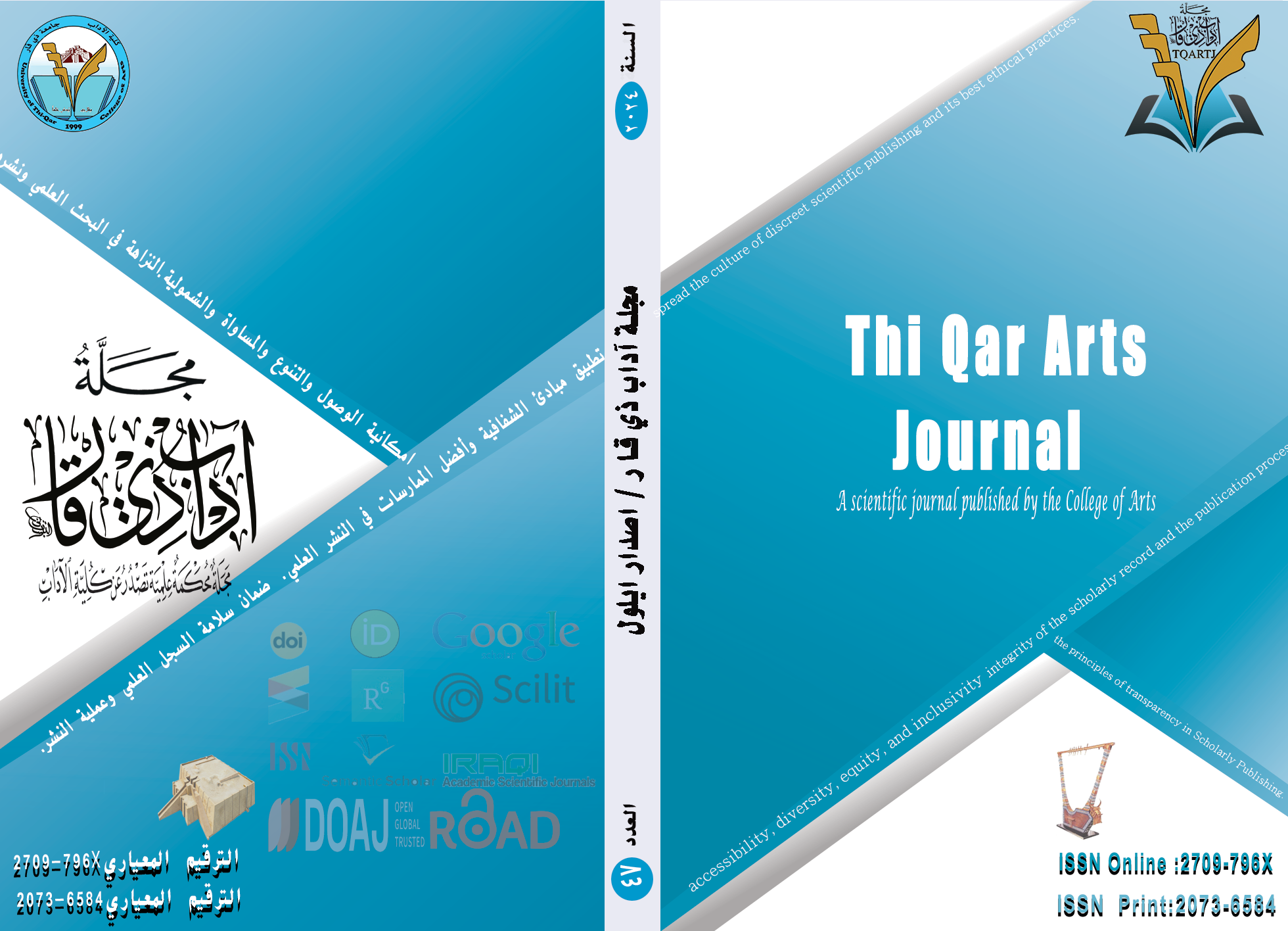Hans-Georg Gadamer: Finitude and Truth
DOI:
https://doi.org/10.32792/tqartj.v10i47.693Keywords:
Finitude, Truth, Prejudice, Understanding, Relativity, Tradition, History.Abstract
This research concerns with the concept of finitude and it’s connectedness to the concept of truth according to the philosophy of the German philosopher Hans-Georg Gadamer. Finitude is a crucial concept in Gadamer’s philosophy especially in his masterpiece Truth and Method. By this concept, Gadamer ascertain an important fact that man has a finite mind and a finite existence. Gadamer had his own interpretations of the truth, and he even entitled his magnus book with it. However, as the research will demonstrate, he does not regard the scientific method as an proper method to reach the truth in other fields that fall outside the scope of science. Actually, there is no method but interpretation. Finitude is formulated within categories and concepts that Gadamer explains, such tradition, historicism, prejudices, and others. The aim here is to reveal the absolute relativism Gadamer’s philosophy ended with, and to ascertain that he was an indirect predecessor to postmodern philosophy.
Downloads
References
1. Bilen, Osman: The Historicity of Understanding and the Problem of Relativism in Gadamer’s Philosophical Hermeneutics (USA: The Council For Research In Values and Philosophy, 2000).
2. Brice, R. Wachterhauser, "Finite Possibilities: Gadamer on Historically-Mediated Truth,” in Mirko Wischke and Michael (Hrsg), Gadamer Verstehen|Understanding Gadamer (Germany: Wissenchaftliche Buchgesellschaft, 2003).
3. Davey, Nicholas, Unquiet Understanding: Gadamer’s Philosophical Hermeneutics (State University of New York Press, 2006).
4. Gadamer, Hans-Georg Gadamer, “Truth in the Human Sciences,” in Brice R. Wachterhauser (ed.), Hermeneutics and Truth (Evanston Illionis: Northwestern University Press, 1994)
5. Gadamer, Hans-Georg Gadamer, “The Universality of the Hermeneutical Problem,” Hans Georg Gadamer, Philosophical Hermeneutics, tran. And ed. By David E, Linge (University of California Press, second paperback printing 2008)
6. Gadamer, Hans – Georg Gadamer, A Century of Philosophy: A Conversation With Riccardo Dottori, Tr. By Rod Coltman with Sigrid Keopke (New York, London: Continuum, 2003)
7. Gadamer, “What is Truth?,” in Wachterhauser.
8. Gadamer, “Man and Language,” in Philosophical Hermeneutics.
9. Lewis, Chris: Gadamer: A Guide For The Perplexed (London. New York: Continuum, 2006).
10. Veith, Jerome, Gadamer and the Transition of History (Indiana University Press, 2015).
11. Zuchert, Catherine H. Postmodern Platos: Nietzsche, Heidegger, Gadamer, Strauss and Derrida (The University of Chicago Press, 1996).
Arabic Sources:
1. Descartes, René: Meditations on First Philosophy, translated by Othman Amin (Cairo: National Center for Translation, 2009).
2. Descartes, René: Discourse on the Method, translated by Mahmoud Mohamed Al-Khudairi (Cairo: Dar Al-Kitab Al-Arabi for Printing and Publishing, 2nd edition, 1968).
3. Gadamer, Hans-Georg: Truth and Method: The Basic Outlines of a Philosophical Hermeneutics, translated by Hassan Nazem and Ali Hakim Saleh (Tripoli: Dar Oya, 2007).
4. Gadamer, Hans-Georg: The Relevance of the Beautiful, edited by Robert Bernasconi, translated, studied, and explained by Dr. Saeed Tawfiq (Cairo: Supreme Council of Culture, 1997).
5. Kant, Immanuel: “What is Enlightenment?” translated by Ismail Mosadek (Fikr wa Naqd Magazine, December 1997 issue), electronic version.
6. Mustafa, Adel: Understanding Understanding: An Introduction to Hermeneutics, The Theory of Interpretation from Plato to Gadamer (Cairo: Ru’ya for Publishing and Distribution, 1st edition, 2007).
7. Heidegger, Martin: Ontology: Hermeneutics of Facticity, translated, introduced, and commented by Dr. Amara Al-Nasser (Baghdad – Beirut: Dar Al-Jamal, 1st edition, 2015).
8. Heidegger, Martin: Being and Time, translated, introduced, and commented by Dr. Fathi Al-Miskini (Beirut: Dar Al-Kitab Al-Jadeed Al-Muttahida, 1st edition, 2012).
Downloads
Published
Issue
Section
License
Copyright (c) 2024 Dr. Ali Hakim Saleh

This work is licensed under a Creative Commons Attribution 4.0 International License.
The journal applies the license of CC BY (a Creative Commons Attribution International license). This license allows authors to keep ownership of the copyright of their papers. But this license permits any user to download, print out, extract, reuse, archive, and distribute the article, so long as appropriate credit is given to the authors and the source of the work. The license ensures that the article will be available as widely as possible and that the article can be included in any scientific archive.



















